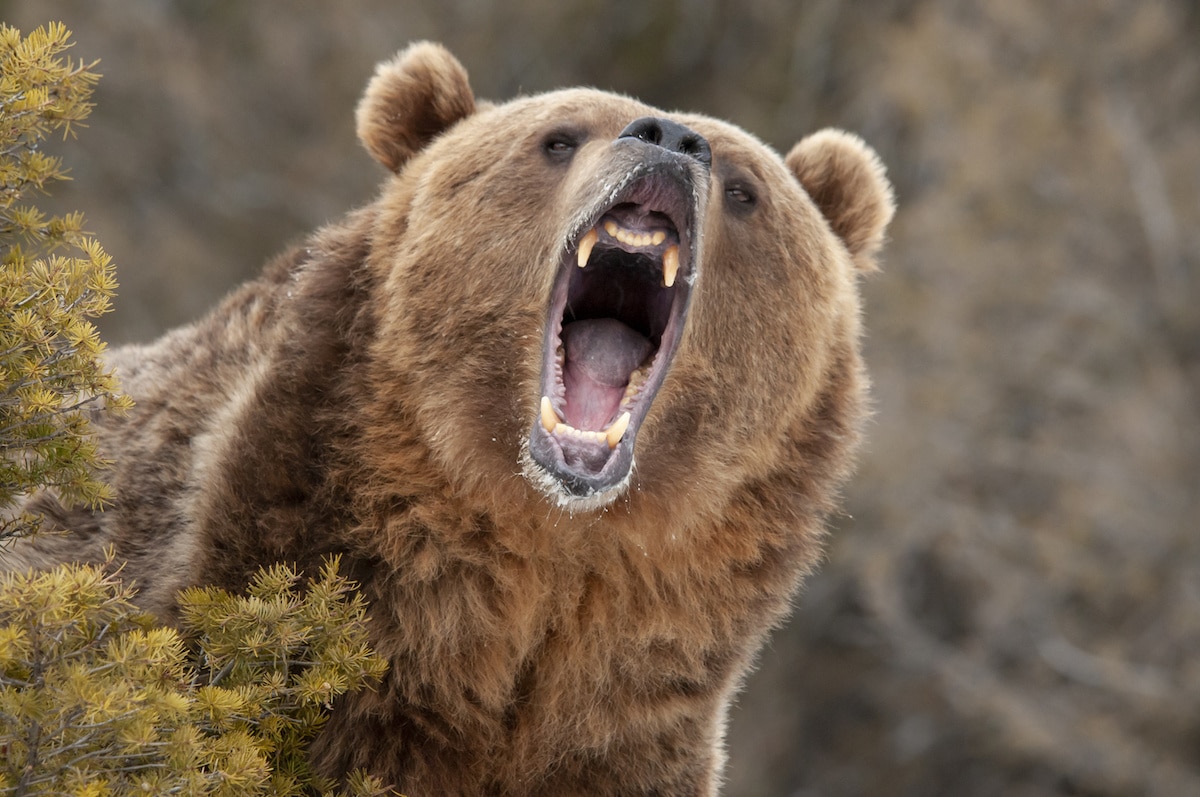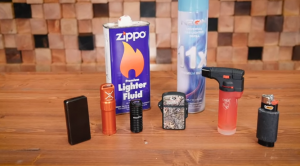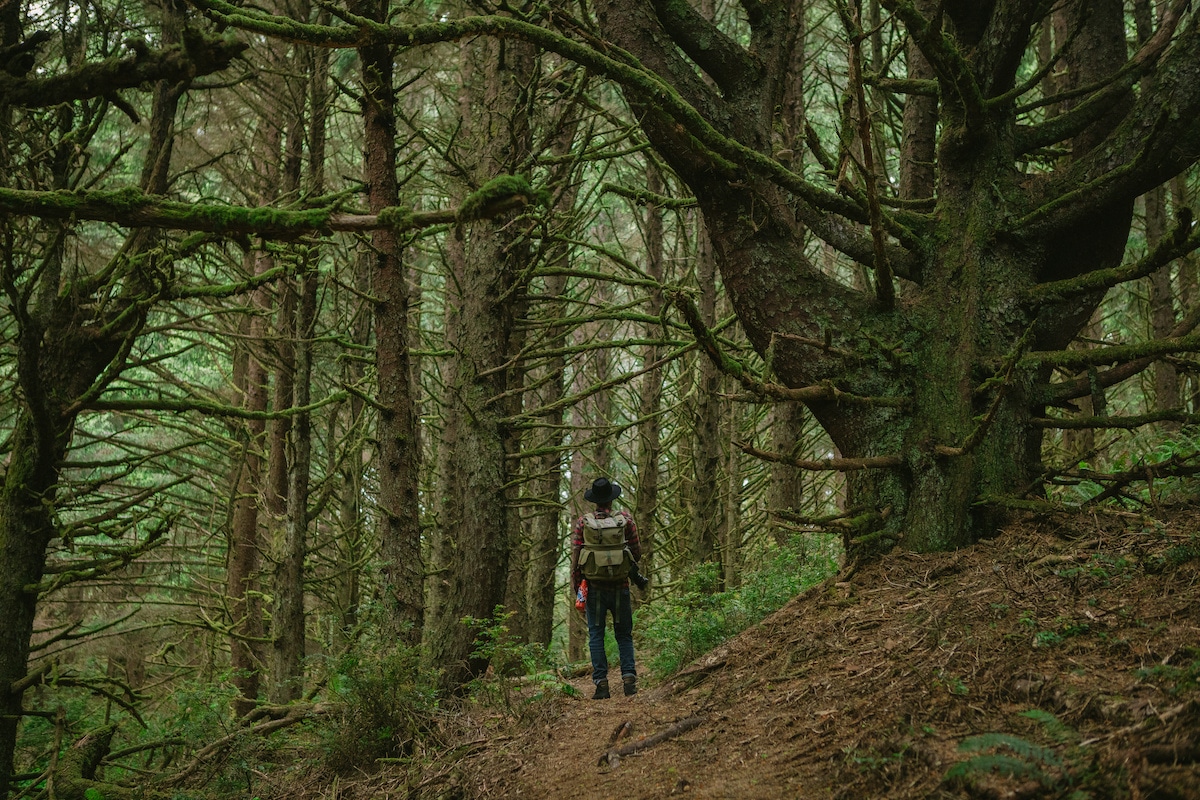Autumn approaches, and the trees are now beginning to change colors! Nature enthusiasts know that this is the absolute perfect time to plan a trip upstate to the wilderness and camp out for a few days. A favorite American pastime, camping allows its partakers to reconnect with their roots and relieve stress or anxiety caused by the daily chaos of work and life.
What We'll Cover
However, camping can be slightly stressful if choosing to camp out on a site that is known for its wildlife. Wildlife is beautiful, not when it comes into your campsite uninvited. To avoid having any animals in your campsite or around it, here are some things that every camper wish they knew before entering a campsite with animals!
What Foods Are Bears and Other Animals Attracted To?
More often than not, campsites will have signs warning any potential campers about bears being present in the area. Keep in mind that bears, as well as most other wildlife, are essentially docile, but may attack if they feel threatened.
Animals are prone to becoming aggressive if they cannot obtain the object of desire—in most cases, your food and everything in your camping kitchen. This hostility may result in damage to your camping supplies, vehicles, campsite, or even to you and any other campers.
Numerous campsites have instated certain regulations concerning the disposal of food-related trash and the containment of food for this reason. In the case that a bear encounter occurs, the bear’s life is even at stake as it may potentially be killed by a bear manager.
What Other Items Attract Wild Animals?
Contrary to popular belief, it isn’t just food that attracts animals to campsites. When you’re camping, you should also be wary of these common items and keep them in a safe place or dispose of them properly.
- Garbage
- Cooking utensils and camping pots
- Toiletries
- Canned or bottled fuel
- Pails, buckets, wash basins
- Camping coolers
- Camping stoves and barbecues
Knowing what attracts animals can help you be prepared once you get out to your camping destination.
Avoiding an Animal Encounter
Whenever possible, you should be working to try to avoid an encounter with wild animals entering your campsite. Here are some tips to keep in mind to help stay safe.
- Store your food or any of the above mentioned items in a locked container, preferably wildlife resistant.
- Sleep in a tent, as tempting as sleeping under the stars may be.
- Set your tent away from the woods or any trails.
- Properly dispose of any garbage.
- Keep a flashlight handy at all times.
- Keep any clothes with stains from cooking or scents in a secure location. Wash them if possible.
- Keep an eye on your pets at all times!
Store Your Food When Not in Use
The easiest way to attract animals to a campsite is by leaving food out in the open. Animals have extremely good senses of smell, and if they catch the scent of food, they’ll come investigate. An easy way to prevent this from happening is simply by storing your foot when you aren’t cooking or eating. There’s a few different ways you can do this.
Bear Canisters
Because bears are so good at causing destruction when trying to steal your food, you will want to use the best bear canister you can find to protect it. Bear canisters often look like plastic jars you’d buy pickles in, but they’re built with bears in mind. They’re air-tight to prevent the scent from getting to the bears and extremely durable to protect your things in case a bear does find it.
Use Your Car
The outdoors may not present many safe places to store your food after use. The solution to this lies within what you brought with you to the campsite: your car. Cars are one of the best places to store food, with the reason being that they are nearly impenetrable for animals. You can even remotely set off the alarm to help scare the animal off if it’s especially determined.
Bear Bagging
The bear bag method is one frequently used by campers who prefer not to spend money on a container. To do this, simply grab a cloth and tie it to a high branch on a tree that would be unreachable by wildlife. You can place your items in it and not have to worry about potentially attracting any unwanted pests. Make sure the bear hang is set up appropriately so animals can’t climb up and take it.
Be Smart When Preparing Food
Spillage of food ingredients or accidents from cooking are the number one reason why wildlife enters campsites. If you have done either of these, it is recommended to clean the area as thoroughly as you can and dispose of the cleaning materials properly.
Just as the heavy aromas of certain foods are capable of enticing us, they can also attract wildlife. Being smart while cooking often means cooking just the right amount of food. If there is no remaining food leftover after eating, there will be less of a chance for an unwanted encounter.
Tips for Being a Smart Cook at Camp
While you’re cooking is when the scents of food are the strongest, so you need to be smart about how you cook and prepare your food to reduce the risk of animals joining the meal. These are some helpful tips to keep in mind when preparing food:
- Always have dish liquid handy in the case of dirty camping utensils or camping knife sets
- Use frozen or prepackaged foods that can be heated or made quickly
- Cook only as much as you need
- Apply oil on your camping grill or cast iron griddle to keep food items from sticking
- Heat a pot of water while you are eating so that it can be used for a quick cleanup afterwards
- Rinse out your camping water bottles and camping mugs if you store anything besides water in them so the scent doesn’t attract animals
Be sure to avoid burning any trash items as this may cause fires in your campground or the surrounding forests. Fires can be devastating to the ecosystem, so you need follow all fire safety rules and avoid using fire as a means of disposal.
Proper Disposal of Your Trash or Food Items
A common misconception about food scraps that have fallen onto the ground is that it will decompose quickly if left thee. While it is true that the food will decompose, it is also true that wildlife may get to your scraps before it can. To avoid this from occurring, be sure to pick up any scraps from the ground and place it into a sealable plastic bag. This will remove any existing food odors in the air and keep your campsite safe.
Other items you may want to dispose of include containers, packaging, and pop cans that can potentially harm the wildlife. Animals are curious and may sniff around these objects which could result in poisoning, entrapment, or even injuries.
Additional Animal Safety Tips
All help is good help when it comes to staying safe while camping. Here are some more things you can do to help prevent and avoid unwanted animal encounters while camping.
- If you have children, regularly check their pockets, backpacks, and sleeping area for food wrappers and scraps
- Avoid storing food in your backpack, tent, soft-sided camper, or tent trailer
- Wear different clothes to bed than what you have cooked in and wash or secure the old clothes to hide the scent of food
- Store pet food like you do your own food
- Choose a campsite away from berry patches, trails, and carcasses
- Keep a flashlight and bear spray with you at all times
- Use bear bells as a deterrent for bears
- Research your campsite while planning your trip to see if they have any warnings or recommendations for camping there
What to do if a Bear or Other Animal Enters Your Camp
Sometimes, despite your best efforts, an animal will find its way into your campsite. If this happens, try to stay calm. Here is what to if you come across an animal while camping.
Handling a Bear Encounter
If a bear is seen on the trails or near your campsite, stay calm. Do not make any sudden movements and stay quiet. If you see a bear, your first instinct will likely be to run, but this is a bad idea. Bears can run up to 35 MPH, so if you run and the bear decides to give chase, it’s going to catch up quickly. If the bear hasn’t noticed you yet, you can try to move slowly to leave the area.
If the bear has noticed you, stand your ground and make yourself look as big as possible. If you have a backpack or jacket, hold it over your head to give yourself more mass. You can also yell at the bear or make noise with pots and pans to scare it off. Unless it has cubs, bears will usually be scared off by this because they try to avoid unnecessary fighting.
After this encounter, report it to campground officials or any local authorities. They will handle the situation to ensure that the bear does not harm any other campers in the area.
Other Animals You May Encounter
Raccoons and skunks are two smaller animals that are most commonly seen by campers. Be sure to avoid getting close to either of these critters if possible. Raccoons will bite if they feel threatened, which can transfer diseases to you. And as for skunks, we all know what happens when someone gets to close to them.
Snakes are a common phobia among people, but fortunately, encounters with snakes are rare. Many snakes just stay in one spot all day and wait for prey to pass by, and most are easily scared off if you walk too close to them. However, you should be familiar with any venomous snakes in the area, just in case.
Insects can also be a problem while camping, but they’re easy to ward off with long pants and shirts and some bug spray. Wear concealing clothing (Don’t forget about footwear: Quality vegan hiking boots or similarly closed-toe shoes are preferable) and keep your sugary foods stored when you aren’t eating them to protect yourself from mosquitos and bees.
Animals with Rabies
Popular media has made rabies seem a lot more common than it actually is, and it’s also given people a very specific idea of what rabies looks like. In reality, it’s quite a bit different than the foaming-at-the-mouth image of rabies we’re used to seeing. Here are some signs to look out for:
- The animal may be visibly drooling
- It may be acting strangely, for example: not running away when approached
- It may move in a way that looks like it’s drunk
- It may act aggressively and try to attack the air around it
- The animal may mutilate itself
Keep in mind that rabies can only be transferred from an animal to a human if it breaks the skin, but if you suspect an animal has rabies, do not approach it. Notify campground officials so they can have a professional humanely euthanize the animal.
Conclusion
We want you to enjoy your camping experience and be safe, and safety starts with knowledge. While some of these steps may seem inconvenient or unnecessary, each one plays an important part to helping keep animals away from you while you’re on on your weekend getaway or hiking excursion. Taking these precautions can help you have the beset camping experience possible and make the forests a better place both for other campers and the animals who live there.
The responses below are not provided, commissioned, reviewed, approved, or otherwise endorsed by any financial entity or advertiser. It is not the advertiser’s responsibility to ensure all posts and/or questions are answered.



![Best Archery Sets This 2023 [Men & Women]](/assets/images/8cf78150f1d9d7a0c175609145d21517.png)

